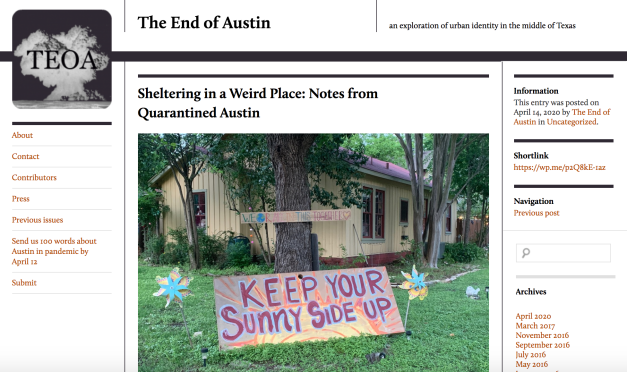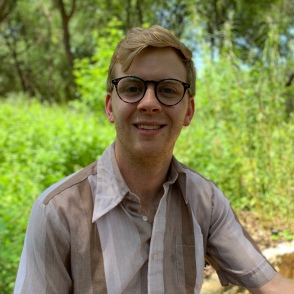 It’s the final week of (virtual) classes and our final installment of Five Questions with First-Years. Today, we bring you Cooper Weissman. Cooper comes to UT by way of the Pacific Northwest where his interest in outdoor recreation activities sparked his research on racialized experiences of “the outdoors.” Read on to learn more about Cooper’s plans at UT, as well as his future plans to live on a farm and “use homegrown veggies to cook recipes that Coyote Shook sends me from their archival research.”
It’s the final week of (virtual) classes and our final installment of Five Questions with First-Years. Today, we bring you Cooper Weissman. Cooper comes to UT by way of the Pacific Northwest where his interest in outdoor recreation activities sparked his research on racialized experiences of “the outdoors.” Read on to learn more about Cooper’s plans at UT, as well as his future plans to live on a farm and “use homegrown veggies to cook recipes that Coyote Shook sends me from their archival research.”
What is your background, academic or otherwise, and how does it motivate your research?
My research interests actually grew out of the short thesis I wrote for my Gender & Queer Studies minor at the University of Puget Sound in Tacoma, WA. I examined a contemporary mountaineering magazine to explore how language used to describe climbing mountains still employs many of the same Eurocentric, hypermasculine, and imperialistic narratives that were used when mountaineering first became a sport in the mid-nineteenth century. This interest emerged from my own outdoor recreation experiences. I did not grow up in an outdoorsy family, but when I moved to the Pacific Northwest for college, I became more interested in activities like hiking, backpacking, and kayaking. As I ventured to places like climbing gyms and R.E.I. for the first time, I was frankly struck by their whiteness and how unwelcoming they could be at times to the uninitiated. While I continued to love spending weekends at Mount Rainier National Park, I also sought to better understand how these dominant cultures of outdoor recreation and environmentalism came to be.
Since my undergraduate studies, I have continued to be passionate about how different groups of people conceptualize their relationships to the natural world, especially as a consciousness of ecological crisis becomes more widespread. While completing my M.A. in American Studies at Yale, I became fascinated by the peculiar fact that so many early conservationists were also ardent eugenicists and my research interrogated the affective and intellectual overlaps between these two ideological movements. I have also written about several different nativist currents within mainstream environmentalism during the twentieth century. While I am still invested in critiquing dominant environmental ideas and movements, since coming to UT, I have increasingly been interested in thinking through alternative histories and futures of human relationships to the natural world. I have looked for these in the actions of migrants today who are forced to make dangerous crossings through deserts and rivers, histories of fugitive enslaved people who lived clandestinely in the woods and swamps of the U.S. South, and the fictional worlds of Octavia Butler.
Why did you decide to come to AMS at UT for your graduate work?
What initially drew me to AMS at UT was the brilliant work being published by the faculty. I was also excited about the opportunity to work closely with students and professors in other departments such as African and African Diaspora Studies and Geography. As I became more interested in the program, I looked into what the other graduate students were studying and I was struck by the amazing interdisciplinary scholarship that they were doing in addition to the creative courses they were designing and teaching. I knew that if I came here, I would be a part of an intellectual community that would broaden my perspective and challenge me to think in new ways. When I had the chance to visit the campus and meet the faculty and graduate students, their kindness and generosity sealed the deal.
What projects or people have inspired your work?
Foundational work on race and the environment by scholars like Dorceta Taylor, Laura Pulido, Stacy Alaimo, and so many others continues to help me think through the historical and ongoing entanglements of race, colonialism, and notions of nature. Caribbean thinkers such as Sylvia Wynter and Éduoard Glissant aid me in understanding the destructive force of colonial modernity while also inspiring me to imagine alternative modes of relationality. More recently, books like Mishuana Goeman’s Mark My Words, Kathryn Yusoff’s A Billion Black Anthropocenes or None, and Tiffany King’s The Black Shoals have provided wonderful models for how to do interdisciplinary scholarship that reaches toward alternative worlding practices that are at once history, present, and future.
Most importantly, I am constantly inspired by the brilliance and fellowship of my cohort in addition to everyone else who is and has been part of my academic community.
What projects do you see yourself working on at UT?
I am currently most passionate about a project that examines histories of marronage in the U.S. South and considers the insurgent ecologies that these fugitive acts point toward. While scholarship on marronage has primarily focused on the more established communities, and even pseudo-state formations, of fugitive enslaved people in the Caribbean, scholars are increasingly examining the histories of enslaved people who lived alone or in small groups in the woods and swamps of the U.S. South. I am in the early stages of thinking about how these fugitive ways indicate alternative conceptualizations of “the outdoors” and alternative ecologies or modes of relationality with other forms of life and non-life. I envision this project involving a good deal of archival research in addition to a deep engagement with black literary work.
What are your goals for graduate school? What do you see yourself doing after you graduate?
As far as goals for graduate school, I just want to stay curious and passionate about the work I’m doing and to do my best to support others around me whether that be other graduate students, undergrads, our department as a whole, or my loved ones outside of the academy. Once I am finished with graduate school, I would love to be able to turn my research into a book-length project. It has also long been a dream to teach in some capacity. In an ideal world this would be as a University professor – and in a really ideal world this would be somewhere in the Pacific Northwest so I can live on a farm and write books and make goat cheese and eat marionberries and use homegrown veggies to cook recipes that Coyote Shook sends me from their archival research. Of course, I am aware that the academic job market is not as strong as it once was, so another goal of mine for the next couple years of graduate school is to develop skills and networks that might help me to find a fulfilling role in other related fields such as documentary filmmaking, podcast journalism, and museum work.
Bonus: In your own words, what is American Studies?
American Studies is a place in the academy for interdisciplinary scholars of all kinds to come together and share their work. It is a place where scholars refuse to draw boundaries and are willing to read and engage with scholarship that might not immediately seem relevant to their own because they know it might radically change the way they think. Ideally, it is a force that works to revolutionize the academy while also remaining active in transnational freedom struggles that are led by those beyond its walls.
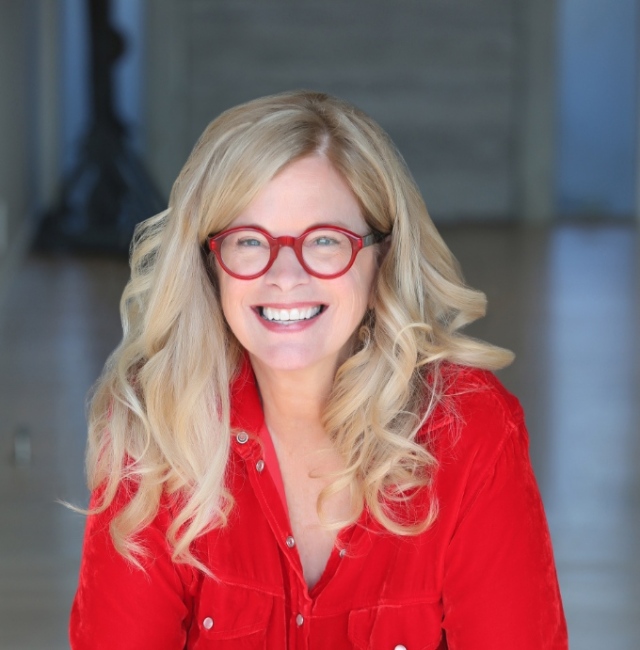
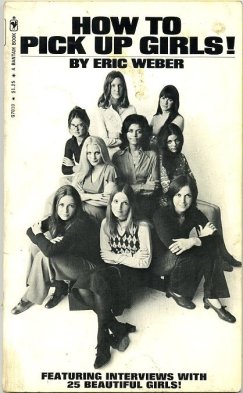 The
The 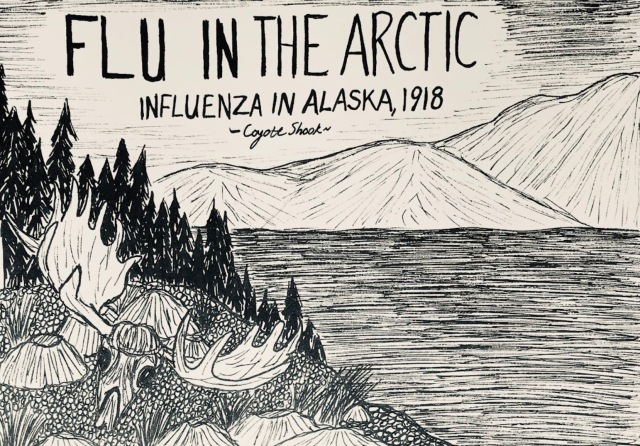
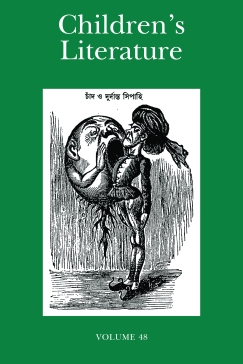 Congratulations are in order for UT AMS PhD student Whitney S. May whose article
Congratulations are in order for UT AMS PhD student Whitney S. May whose article 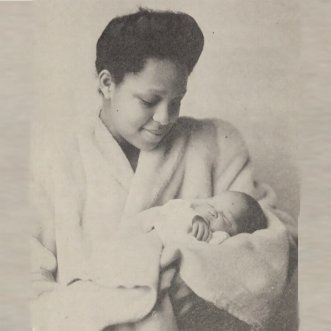 The
The  It’s the final week of (virtual) classes and our final installment of Five Questions with First-Years. Today, we bring you Cooper Weissman. Cooper comes to UT by way of the Pacific Northwest where his interest in outdoor recreation activities sparked his research on racialized experiences of “the outdoors.” Read on to learn more about Cooper’s plans at UT, as well as his future plans to live on a farm and “use homegrown veggies to cook recipes that Coyote Shook sends me from their archival research.”
It’s the final week of (virtual) classes and our final installment of Five Questions with First-Years. Today, we bring you Cooper Weissman. Cooper comes to UT by way of the Pacific Northwest where his interest in outdoor recreation activities sparked his research on racialized experiences of “the outdoors.” Read on to learn more about Cooper’s plans at UT, as well as his future plans to live on a farm and “use homegrown veggies to cook recipes that Coyote Shook sends me from their archival research.”